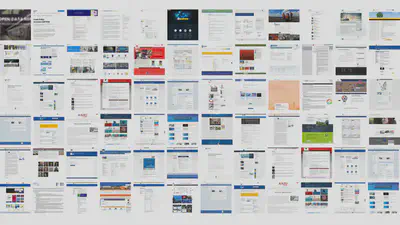Cultural & Creative Sectors and Industries Data Observatory
 Photo: refargotohp
Photo: refargotohpThe creative and cultural sectors and industries are mainly made of networks of freelancers and microenterprises, with very few medium-sized companies. Their economic performance, problems, and innovation capacities hidden. Our open collaboration to create this data observatory is committed to change this. Relying on modern data science, the re-use of open governmental data, open science data, and novel harmonized data collection we aim to fill in the gaps left in the official statistics of the European Union.
Table of Contents
Our approach to a cultural and creative sector data observatory
The CCSI Data Observatory aims to be the go-to point for the cultural and creative sector and industry data. We want to help creative businesses, policy-makers, film funds, cultural heritage organizations, and civil society organizations with their data problems. Such organizations in Europe usually have a small team, often made of freelancers. Most of them have no data scientists or data engineers (and could not afford them). They usually do not even have in-house IT, or it has a very limited capacity.
Reprex is a Hauge-based impact startup currently developing the prototype of a decentralized, modern, web 3.0-compatible European Music Observatory. We are collecting and processing our users’ hard-to-get data and information in 20 countries. Reprex’s live prototype, the Digital Music Observatory, has successfully solved several countries’ complex problems (e.g. valuing and pricing music, providing evidence on piracy, predicting audiences, and finding algorithmic biases against small-country artists.) Our product/market fit was validated in the world’s 2nd-ranked university-backed incubator, the Yes!Delft AI+Blockchain Lab. We further developed the idea in the JUMP European Music Market Accelerator and are currently a finalist in the international impact innovation competition, The Hague Innovators Challenge. In 2022, our Digital Music Observatory collaboration won a Horizon Europe Research and Innovation Grant and three Culture Europe grants.
We realized in 2021 that most of the hard-to-get and difficult-to-process information sources of music are identical or very similar to those in film, gaming, books, and even fashion. We created a consortium with some of our partners in the music observatory, but unfortunately this project, unlike our music observatory project, did not get the desired funding yet. With our partners, the Scuola Superiore di Studi Universitari e di Perfezionamento Sant’Anna as original project initiator, the Institute for Information Law Research or the University of Amsterdam kept the unfunded project alive. The Stichting Europeana from the Netherlands supported with recommendation Reprex to compete with this idea for The Hague Innovation Award.
- We want to help cultural organizations with top-notch market research, for example, survey recycling, big data collection, and reuse of not-yet-processed public sector data to provide a much better value-for-money service. We can also place the research data into innovative apps, such as audience prediction with machine learning.
- Make the digital presence of our creative partners more visible and usable in the era of web 3.0. Harmonize their website and information automatically with global knowledge graphs, and place their research material, films, 3D objects, and catalogs into international knowledge databases and web services to create a much more significant impact.
- Test if autonomous, AI-driven applications (such as music, film, or book streaming platforms, library recommended systems, and search engines) find their content, understand it well and recommend it to the correct audiences. Big data and AI create many inequalities and usually place European creative enterprises, particularly from smaller countries, in a disadvantageous position vis-a-vis American or English-language productions. With our world-class research partners in metadata and algorithmic biases, we improve.
- Provide so-called ‘smart policy documents,’ such as business or policy dashboards, newsletters, and advocacy reports that automatically refresh their international comparative data, its visualizations, and legal and official policy document references. We automate the work of an eminent research assistant: we find the correct version of data in your documents and remind you of outdated legal or policy references. We place your research on web 3.0 knowledge graphs so that the document will search for its appropriate audience and significantly increase your dissemination and advocacy outreach.
What are data observatories?

Data observatories are public-private partnerships among businesses, consultancies, policy- and knowledge organizations, NGOs, and academic research institutes. They ensure the continuity of data collection, processing, and dissemination in various sectors. Their role is vital in balancing big data inequalities: usually, only the largest corporations, best-endowed universities, and advanced governments can sustain significant and systematic data collection programs without partners. Sharing collection and processing costs allows city ecosystems, smaller enterprises, or researchers outside global knowledge centers to remain competitive.
Invitation for an open collaboration
- We would like to find new partners to optimize their market, academic research, or digital heritage production/publication with modern data science.
- We are looking for partners who want to get involved in methodological innovation (supported by national or Horizon Europe grants) in survey recycling, digital rights management, and the distribution of conventional and 3-dimensional cultural objects.
- Also looking for partners to help develop and test our connected, open-source tools for releasing digital cultural objects on global knowledge graphs and make the innovations of 21st-century data science and engineering even in microenterprises or civil society organizations to combat the inequalities of big data and unethical AI. Such projects are ideal candidates for Creative Europe grants.
- We are looking for a forward-looking city and a local art/media tech scene, possibly with an existing knowledge lab or a recent European cultural capital history, to host our future observatory. Reprex has the know-how to develop a PPP in such an ecosystem, develop the data governance plan, and obtain financing.